News & Commentary
If You’re Black or Brown and Ride a Bike in Tampa, Watch Out: Police Find That Suspicious
By Nusrat Choudhury, Staff Attorney, ACLU's Racial Justice Program
The Tampa Bay Times' recent disclosure that police are targeting Blacks who ride bicycles — including children as young as three years old — for dramatically high rates of stops and searches is the latest piece in the nationwide debate about racial profiling that has followed the police-involved deaths of Michael Brown, Eric Garner, Walter Scott, Freddie Gray, and countless others.
Communities across the country are connecting the deluge of incidents in which police use force against Blacks (or, as in Gray's case, show gross disregard for Black life) to everyday interactions in which police stop, frisk, and search Blacks and Latinos because of their race, rather than evidence of wrongdoing — a practice well-documented in New York, Boston, Philadelphia, and Ferguson. The latest reports from Tampa underscore just how little progress has been made in rooting out racial profiling and how the routine over policing of communities of color can lead to interactions that tragically devolve into the use of force.
By Guest Blog- ACLU National

A Community Conversation on Race Relations and Policing in Tampa
Last week, I attended a Town Hall in Tampa that was convened by Attorney Barry Cohen to address race relations and law enforcement. There was a panel of 14 individuals that included judges, attorneys, the Public Defender, educators, the Tampa Police Department, the Sheriff’s office, parents, and a youth. There were over 200 people in attendance representing a cross-section of Tampa and Hillsborough.
The conversation was very timely, in light of the recent publication of a report showing that blacks are being disproportionately over-policed in Tampa. Attendees shared stories of their experiences with law enforcement, judges, the school system, the criminal justice system, and the devastation to communities due to the intersection of race and poverty, and the interface with law enforcement and the courts.
By Joyce Hamilton Henry
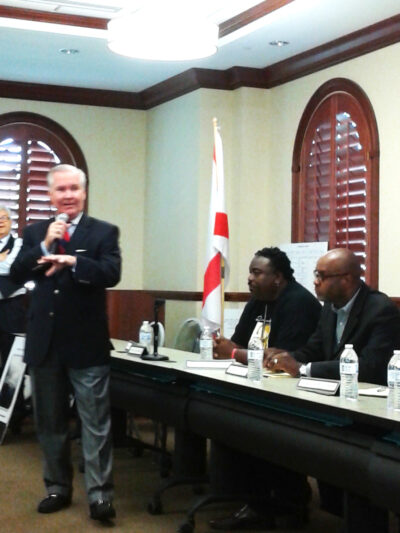
Riding While Black in Tampa
This past weekend, the Tampa Bay Times reported on evidence that Blacks are being racially profiled and over-policed by law enforcement in Tampa. The paper analyzed twelve years of data on bicycle citations and discovered that of the 10,000 bicycle tickets issued by Tampa Police, 79% were given to Blacks—even though Blacks comprise only a quarter of the city’s population. The investigation also revealed that in 2014, bicycle citations were concentrated in Tampa’s poor, Black neighborhoods.
What has Tampa Police’s targeting of Blacks for bicycle citations accomplished? According to the data, only 20 percent of citations led to arrests. Looking closely at individual citations only raises more questions about the effectiveness of targeting poor Black neighborhoods for bicycle law enforcement. Did it further public safety, for example, for the Tampa Police to confiscate the bike of a 54-year-old man because he couldn't produce a receipt to prove it was his?
By Joyce Hamilton Henry

Florida Legislators on the Attack for our Civil Liberties
We’re wrapping up two committee weeks at the Capitol that saw a lot of action around civil rights and civil liberties. The legislature will now break for a week and come back to start the formal session on March 2. Here’s what you need to know to get prepared.
I’ve written about how body cameras are a great oversight mechanism that reduces the use of force incident and citizen complaints alike. We’ve sent suggestions to local and state policy makers alike suggesting some smart ways to protect privacy without frustrating the oversight purpose of the cameras. The Senate, however, has taken the promise of body cameras and turned it on its head by pursuing broad exemptions from the public record laws for the resulting footage.
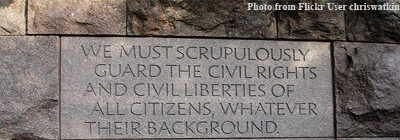
Replacing the Noose With a Needle: The Legacy of Lynching in the United States
By: Angel Harris, Staff Attorney, ACLU Capital Punishment Project
Ida B. Wells said it best, "Our country's national crime is lynching."
Last week, we were reminded of this when the Equal Justice Initiative released its report, "Lynching in America: Confronting the Legacy of Racial Terror." A gruesome history of these carnivals of torture and death from the Civil War until World War II, the report documents the racial terrorism designed to keep black Americans across the South destitute and powerless.
By Guest Blog- ACLU National
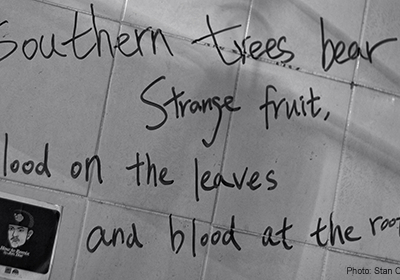
Get Ready to Fight for Civil Liberties in Tallahassee
The time is upon us once again. Monday, March 2 marks the start of the Florida legislature’s 2015 session and the ACLU of Florida will be at our state’s Capitol defending against bills that aim to limit your civil rights and civil liberties. We’ll also be fighting for new laws that look to expand freedoms for all Floridians. We’re excited about the work we’ll be doing and want to share just a glimpse of what’s to come.

Real People Aren’t Target Practice
The pictures of six black men stared back at me from the screen, the images of their faces shredded by bullet holes. It seemed like some kind of sick threat, but it was the work of a Florida police department.
This morning, I was greeted by the sickening news that the North Miami Beach Police Department (NMBPD) is using mug shots of black people and others for target practice. Mind you, these are not cartoons or computer-generated mug shots—these are photographs of real people, some of whom were arrested by the NMBPD itself.
By Joyce Hamilton Henry
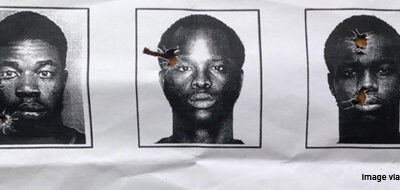
Voting is a Human Right Not a Privilege
Today is International Human Rights Day. On this day, we are reminded that all persons as members of the human family have certain inalienable rights. These rights are enshrined in our nation’s Constitution as a living testimony to our humanity. One of these rights is the right to vote, and this foundation of our democracy has become a human rights crisis in our state.
Florida is one of only a few states that denies the right to vote for individuals with prior felony convictions, and is by far the worst offender, with more than 1.5 million people in Florida shut out of our democracy. This situation was exacerbated under rules passed by the Florida Board of Executive Clemency – made up of Governor Scott, Attorney General Pam Bondi, and several other cabinet officers – shortly after their inauguration in 2011.
By Joyce Hamilton Henry
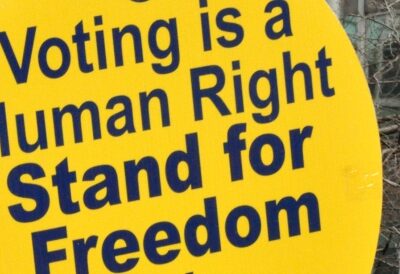
Cops as Soldiers: Could Ferguson’s Military Assault Tactics be Used Here in Florida?
The tragic shooting of Mike Brown in Ferguson, Missouri has raised many questions about how law enforcement treats the very citizens it is supposed to protect, including whether local law enforcement should be armed to the teeth with military grade equipment. Could a military response happen here in Florida? It’s impossible to know right now, and we need to change that.
In June, the ACLU released a national report on the militarization of local law enforcement, which documented the federal to local pipeline of war machines and weapons. There are several programs that enable even the smallest towns to obtain massive reserves of weapons.
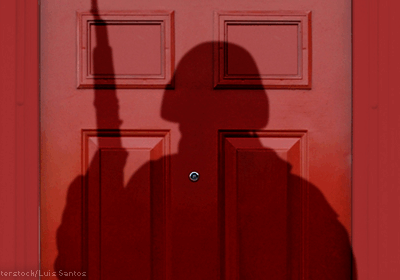
Stay Informed
Sign up to be the first to hear about how to take action.
By completing this form, I agree to receive occasional emails per the terms of the ACLU’s privacy statement.
By completing this form, I agree to receive occasional emails per the terms of the ACLU’s privacy statement.
